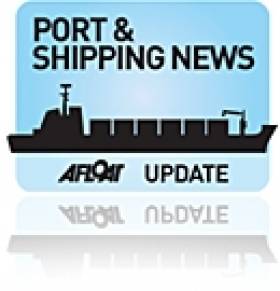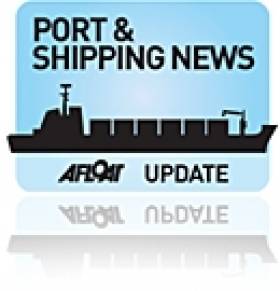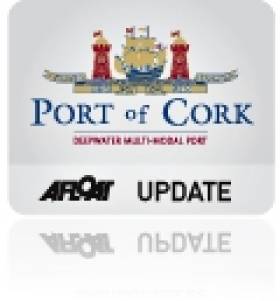Displaying items by tag: Banana Box Boats
Fyffes Container Technology Broadens Market Reach
#BananaBoxBoats – Fyffes, Europe’s biggest banana importer headquartered in Dublin is through its Costa Rica base exporting fruit to growing markets in Russia and the Middle East.
New shipping containers will now allow Fyffes to export fruit from Central America into growing markets in Russia and the Middle East, according to the managing director of the Irish company's Costa Rican subsidiary.
Speaking on a visit by Minister of State for Trade and Development Joe Costello, Fyffes general manager for Central America Alasdair Macleod said the company had been exporting 120 atmosphere-controlled containers of bananas and pineapples a week to Scandinavian countries this year. The containers can keep the fruit fresh for 23 shipping days.
Advances in container technology that preserve fruit over 35 days of shipping could allow the company to export more produce into Europe, better quality food into Russia and more fruit into the Middle East.
For much more on this story, The Irish Times reports.
More Bananas Head for Cork
#PORTS & SHIPPING – As previously reported on Afloat.ie Maersk Line's newly launched liner service that includes the return of the banana trade to the Port of Cork continues as another shipment is due from Central America /Caribbean ports with the arrival of Nedlloyd Adriana (photo) tomorrow, writes Jehan Ashmore.
Nedlloyd Adriana (2003/ 26,833grt) is a younger sister of Maersk Nolanville (2004/26,833grt) which previously docked at the Ringaskiddy Deepwater Berth as part of the services weekly call. Onboard the 2,500 (TEU) twenty equivalent unit capacity containerships, they include 800 (reefer points) i.e electrically plugged in refrigerated containers to store perishable products.
Noting the cargo deck arrangement is divided by the superstructure, which in vessel design terms is not unusual, but is not normally seen in Irish waters due to this larger sized containership. She is fitted with three deck-mounted cranes positioned forward of the bridge and a single-aft crane to cater for the smaller cargo-deck astern.
The vessel was built in South Korea by Hyundai Heavy Industries in Ulsan and was launched as Adriana Star. She was later renamed P&O Nedlloyd Adriana until dropping her operators prefix in 2004.
When the vessel has completed operations in Ringaskiddy, she heads to UK and continental ports to complete the liner service which is served in total by a pool of eight similar sized vessels.
The term 'liner' service refers to a dedicated regularly operated network of long-distance routes across oceans that connect ports between the continents.
The liner service is complemented by an onward internal network of short-seas routes known as 'feeder' services and use smaller containerships such as Vega Stockholm (photo) which calls to Dublin Port (see BBC The 'Box') as previously reported on Afloat.ie
As in the case of the Maersk Line liner service which brings bananas from source directly to Cork, there is no requirement to transfer such cargo by feeder vessel from another port in the UK or mainland Europe.
The 'Banana' Trade Returns to Cork
#PORT OF CORK – Global shipping giant Maersk Line recently started their first ever direct service to Ireland with a new liner service calling to the Port of Cork and sees the return of the 'banana' trade not last seen in port since the 1970's, writes Jehan Ashmore.
The older 'banana' boats or reefers that used to serve Cork may be long gone but the Danish owned Maersk Line will be operating an impressive pool of eight large contiainerships. They will bring leading banana brands from Central American ports to Europe with Cork being the first port of call in Europe. The liner service starts in the Mexican port of Vera Cruz and includes calls to Costa Rica, Belize, Panama before reaching Cork.
One of the vessels Maersk Nolanville (2004/26,833grt) last week docked in Ringaskiddy Deepwater Terminal, is one of the largest of her type to be accommodated in the port. At 700m long, a beam over 30m and drawing a draft exceeding 10m the South Korean built vessel was too large to berth at the ports Tivoli Container Terminal further upriver on the Lee.
Maersk Nolanville and her fleet-mates will operate with a weekly call to Cork on Thursdays, where quayside cranes in Ringaskiddy will handle the 2,500 (TEU) capacity vessels including around 800 refrigerated containers containing perishable tropical fruits.
Asides bananas the vessels will import other cargoes, with the containerships also calling to Tilbury in the UK and Rotterdam and with exports on the return leg of the long trans-Atlantic voyage home.


























































